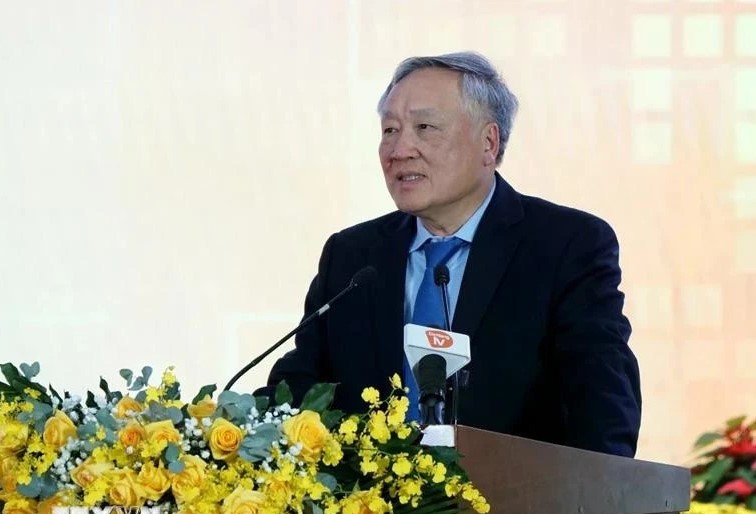Vietnam is positioning itself to become a major player in the global financial sector, with a focus on developing international financial centers in Ho Chi Minh City (HCM City) and Da Nang. Permanent Deputy Prime Minister Nguyen Hoa Binh recently outlined five key tasks to ensure the successful establishment of these centers, emphasizing the importance of strategic planning and international cooperation.

One of the most important steps is to modernize Vietnam's legal and regulatory framework. Mr. Binh emphasized that creating transparent, open and internationally agreed policies is crucial for the development of resilient financial centers. By ensuring that the legal system is in line with global standards, Vietnam aims to create a competitive and attractive environment for domestic and international investors. This legal clarity will be instrumental in creating a comprehensive international financial center in HCM City and a regional center in Da Nang.
Mr. Binh also emphasized the need to develop a skilled workforce capable of meeting the needs of modern financial centers. This includes experts in governance, operations, risk management and dispute resolution. He called for skilled workers to be trained quickly and sent abroad to gain practical experience around the world. This approach ensures that Vietnam has the necessary talent pool to operate these financial centers efficiently and attract both local and international stakeholders.
Robust infrastructure is critical for these financial centers to thrive. Ministries, sectors and municipalities must focus on building a comprehensive ecosystem that supports financial services. He noted the need to place a strong focus on emerging technologies such as fintech and blockchain, which are essential to the future of the global financial system. By aligning the development of these centers with Vietnam's technological and economic strengths, the country aims to ensure its competitiveness in the global financial market.
Mr. Binh called for greater international cooperation to accelerate the development of Vietnam's financial centers. Collaboration with global experts and investors will be critical to attract the capital and knowledge required to build world-class financial infrastructure. By leveraging international expertise, Vietnam can accelerate the creation of its international financial centers, which will significantly contribute to the country's socio-economic growth.
Both HCM City and Da Nang offer unique strengths that will support the development of these financial centers. HCM City already serves as Vietnam's premier fintech hub, hosting more than 50% of the country's fintech startups. The city's skilled workforce and competitive labor costs increase its potential to innovate and create a diverse range of financial products. These factors make HCM City an ideal location for the country's international financial center.
In contrast, Da Nang is developing its financial center model focusing on a multi-component ecosystem. This model includes international financial services, fintech and techfin platforms, as well as essential business services such as auditing, accounting and legal advice.
With nearly 16 hectares of land earmarked for mixed-use development, Da Nang is positioning itself as a future hotspot for financial and technology services, supported by strong infrastructure connectivity.
Financial centers will rely heavily on technology to drive innovation and efficiency. Phan Duc Trung, President of the Vietnam Blockchain Association, noted that these centers will be in line with Vietnam's national agenda for technological advancement and digital transformation.
Integrating blockchain, fintech and cross-border transactions will reduce costs and expand global market access to ensure Vietnam remains competitive in the rapidly developing financial sector.
Vietnam's strategic vision to create international financial centers in HCM City and Da Nang reflects the country's ambitions to establish itself as a leading fintech hub in Southeast Asia. With strong domestic capabilities and international collaboration, Vietnam is on track to build a dynamic financial ecosystem that will drive economic growth and innovation.